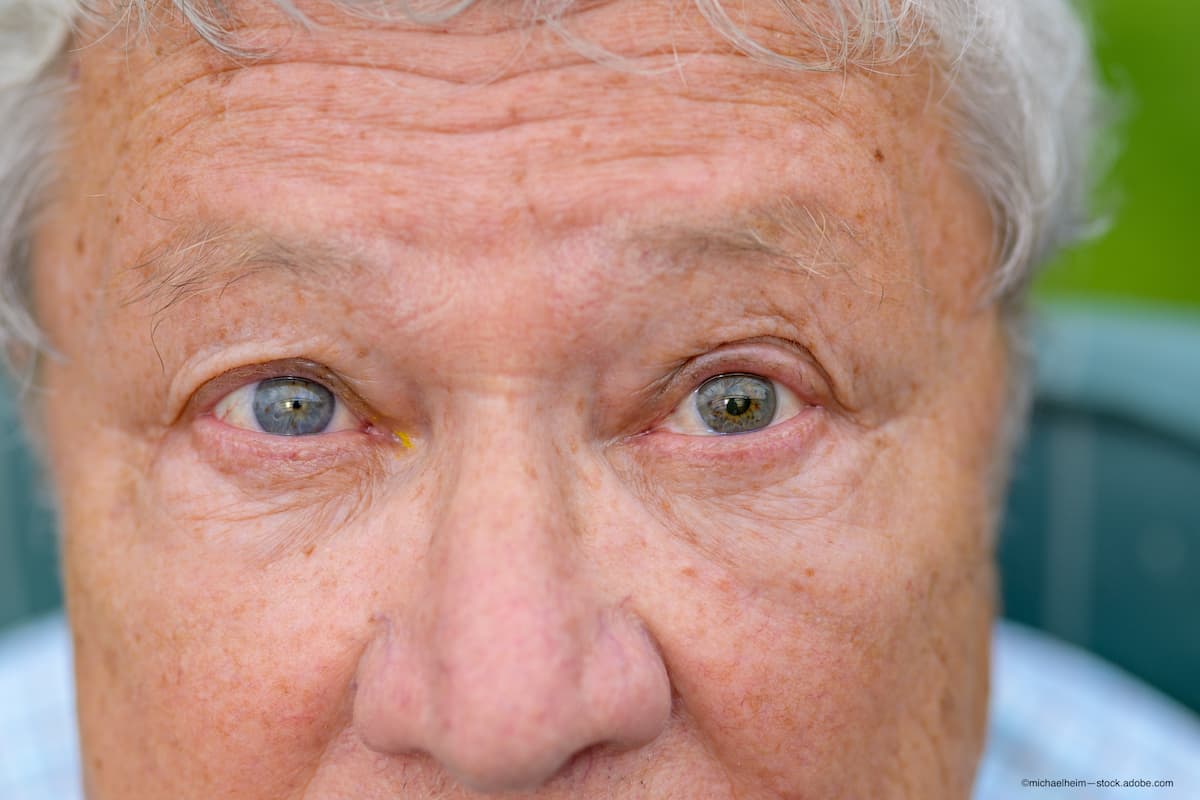BREAKING NEWS: Eyenovia Announces FDA approval of Mydcombi, first ophthalmic spray for mydriasis
Mydcombi is the first FDA-approved, fixed-combination of tropicamide and phenylephrine for the reversal of mydriasis.
Image credit: Adobe Stock/©michaelheim

Eyenovia Inc. announced the FDA approved Mydcombi (tropicamide and phenylephrine hydrochloride ophthalmic spray) 1%/2.5% for inducing mydriasis for diagnostic procedures and in conditions where short-term pupil dilation is desired.
According to the company, this represents the first approved, fixed-dose combination of tropicamide and phenylephrine in the United States and also the first product using Eyenovia’s proprietary Optejet device to be approved by any regulatory authority.
Mydcombi is designed to improve the efficiency of the estimated 106 million office-based comprehensive eye exams performed every year in the United States, as well as the estimated 4 million pharmacologic mydriasis applications for cataract surgery. The product is contraindicated and should not be used in patients with known hypersensitivity to any component of the formulation.
Michael Rowe, CEO of Eyenovia, lauded the news in a statement.
“The approval of Mydcombi, our first FDA-approved product, represents the culmination of years of tireless effort by the entire Eyenovia team, and I would like to express my sincere gratitude to the associates and technical experts who helped advance this important program through this transformational milestone,” Rowe said in the statement. “We look forward to introducing Mydcombi to key offices beginning this summer while we bring our internal manufacturing capabilities on-line for 2024.”
Moreover, Rowe noted FDA approval of Mydcombi provides validation of the Optejet as it is the first product approved using the Optejet platform, which is core not only to Eyenovia’s internal development programs, including MicroLine for presbyopia, but its partnered programs as well.
“We see opportunities to unlock significant opportunities in the future treatment of other ophthalmic conditions including glaucoma and dry eye. I am confident in our ability to maintain our current momentum,” he added.
“I am proud of our team for this significant achievement – which represents many ‘firsts’ for eye care,” Sean Ianchulev, MD, MPH, founder and chairman of Eyenovia’s Board of Directors, said in a statement. “The use of eye dropper bottles has presented challenges for dosing in ophthalmologic settings in millions of patients. We can do better now using sophisticated micro-array print delivery with physiologic dosing that is similar to the natural tear film volume.”
Eyenovia management will provide additional updates on Mydcombi as well as its ongoing development programs and partnerships during its regularly scheduled first quarter 2023 update conference call and webcast on May 11th, 2023.
Peter J. McDonnell, MD, director of The Wilmer Eye Institute, The Johns Hopkins University School of Medicine, Baltimore, and chief medical editor of Ophthalmology Times, noted that while he has no financial interest in Eyenovia or its competitors, he believes the technology they offer is certainly innovative.
“By delivering a much smaller volume of solution to the ocular surface, it seems to me there is the potential for fewer adverse events that might result from systemic drug absorption, such as systemic hypertension following administration of phenylephrine,” McDonnell said. “As ophthalmologists generate ‘real world’ evidence with this delivery system following FDA approval, it will be interesting to see to what degree ophthalmologists and industry adopt this as an alternative to the traditional large volume eye drops that have been the standard for two centuries.”
MydCombi was supported by 2 completed Phase 3 clinical trials, MIST-1 and MIST-2. The MIST-1 trial (NCT03751631) compared MydCombi to phenylephrine (PE) alone and tropicamide (TR) alone, while MIST-2 (NCT03751098) compared MydCombi to placebo. All treatments were administered using Eyenovia’s Optejet technology.
Mydcombi (tropicamide 1% and phenylephrine 2.5% ophthalmic spray) is used for pharmacologic mydriasis (eye dilation), which is targeted to improve the efficiency of the estimated 100 million office-based comprehensive eye exams performed every year in the United States, as well as the estimated 4 million pharmacologic mydriasis applications for cataract surgery. Developed as a micro-formulation for use without anesthetic, Eyenovia believes Mydcombi will help improve the efficacy, tolerability, and efficiency of pharmacologic mydriasis.
About Optejet and Microdose Array Print (MAP) Therapeutics
Eyenovia's Optejet microdose formulation and delivery platform for ocular therapeutics uses high-precision piezo-print technology to deliver 6-8 μL of drug, consistent with the capacity of the tear film of the eye. We estimate the volume of ophthalmic solution administered with the Optejet is less than 20% of that delivered using conventional eyedroppers, thus reducing overdosing and exposure to drug and preservatives. Eyenovia's patented microfluidic ejection technology is designed for fast and gentle ocular surface delivery, where solution is dispensed to the ocular surface in approximately 80 milliseconds, beating the ocular blink reflex. Successful use of the Optejet has been demonstrated more than 85% of the time after basic training in a variety of clinical settings compared to 40% to 50% historically seen with conventional eyedroppers.
Newsletter
Want more insights like this? Subscribe to Optometry Times and get clinical pearls and practice tips delivered straight to your inbox.